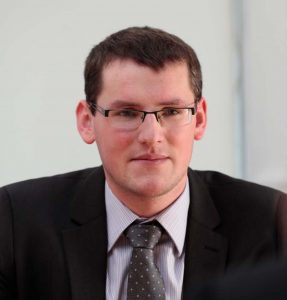Case Preview: Habib Khan v General Pharmaceutical Council
13 Tuesday Dec 2016
Douglas Waddell, Brodies LLP Case Previews
Share it
The case of HK v General Pharmaceutical Council is an appeal to the Supreme Court by the General Pharmaceutical Council (GPC) against a decision of the Inner House of the Court of Session (Scotland’s highest civil court). The respondent, Habib Khan (HK), was a registered pharmacist.
In 2011 Mr Khan was convicted of assaulting his wife and fined. He did not report the conviction to the GPC within seven days as required. He was then convicted in June 2012 in relation to two further incidents of domestic violence. The GPC commenced disciplinary proceedings against Mr Khan on the basis that, as a result of his failure to report his initial conviction, and his further conviction in 2012, his fitness to practise was impaired by reason of the convictions and/or misconduct.
The GPC’s practice committee, which presided over the disciplinary proceedings, decided that Mr Khan’s fitness to practise had been impaired. By way of sanction, the committee had the power to issue a warning, impose conditions of practice, suspend from practice for 12 months or remove the practitioner from the Register of Pharmacists.
The committee felt that neither a warning nor an imposition of conditions of practice were appropriate. It considered the option of suspension for 12 months, but held that it was an insufficient sanction to mark the gravity of Mr Khan’s behaviour. The committee therefore decided to remove Mr Khan from the Register of Pharmacists, with the result that he could not apply for re-registration for a further five years, holding that “his conduct is fundamentally incompatible with continued registration as a pharmacist, and that public confidence in the profession demands no lesser sanction than removal from the Register”.
Mr Khan appealed the decision to the Inner House of the Court of Session. He argued firstly that the decision to remove his name from the register was manifestly wrong, on the basis that he had not been permitted time to take legal advice after the GPC had made its decision on whether his fitness to practise was impaired, and secondly that the sanction was one no reasonable committee should have imposed.
The Inner House delivered its judgment in July 2014. On the first ground, it rejected Mr Khan’s proposition that there had been unfairness in the procedure followed by the GPC’s practice committee. However, on the second ground, the court held that the practice committee had not given sufficient consideration to the option of suspension. The practice committee had the power to extend suspension for a further 12 months after the initial suspension, which it had not considered when making its original decision. The decision of the GPC’s practice committee to remove Mr Khan from the register was therefore quashed, although its decision that his fitness to practise was impaired was not affected.
The GPC appealed the Inner House’s judgment to the Supreme Court. The main issues in contention were:
- Whether there is an intermediate sanction open to the GPC’s sanction committee which allows it to indicate that a period of suspension should exceed 12 months; and
- Whether the original sanction of removal from the Register of Pharmacists was wrong in principle, clearly inappropriate or plainly disproportionate.
The appeal was heard on 10 November 2016, and judgment is due to be handed down on Wednesday 14 December.


